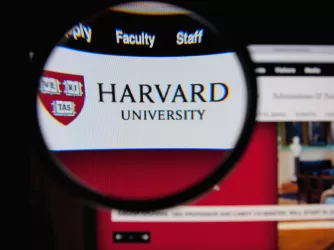Table of Contents
Hampton University Says 'No' to Gay and Lesbian Student Group
Students at Hampton University have been trying to start a gay and lesbian group for as long as current students can remember. The university denied a group in the 2004-2005 school year, and this past December Hampton shot down Students Promoting Education, Action and Knowledge (SPEAK). As our press release today explains, SPEAK was given absolutely no explanation about the rejection, receiving a letter stating only that “[y]our organizations [sic] proposal was not selected at this time.”
No gay and lesbian group exists at Hampton, despite the fact that 54 students have expressed interest in joining SPEAK if it were recognized. Having been denied, SPEAK is now prohibited from reapplying for recognition for two years. That means that the administration has effectively banned a gay and lesbian group from campus throughout the entire college career of a great many Hampton students.
When SPEAK came to FIRE for help, we wrote to Hampton demanding an explanation for the administration’s refusal to recognize SPEAK. Much like with FIRE’s recent case at Brown University, which inexplicably suspended the Reformed University Fellowship, we questioned whether there was a legitimate reason behind the university’s actions. Did someone fail to file the proper paperwork correctly? Is there something students can do next time around in order to gain recognition? Or does the repeated denial of recognition to gay and lesbian groups speak to some more repressive, unspoken policy that such groups are not welcome at Hampton? Whatever Hampton’s reasoning, it has kept silent on the subject, leaving students, parents, alumni, and prospective students all wondering: what exactly are the limits on students’ rights at Hampton?
Plenty of universities deny homosexual, bisexual, and transgender students equal status with straight students; neither Brigham Young University’s nor Liberty University’s student body would expect a gay-affirming group to get very far on campus. But then, those institutions are clear about their policies, practicing real truth in advertising. Teenagers hoping their college life will involve membership in a LGBTQ group would likely seek an education outside the halls of such institutions.
Hampton, as a private, non-sectarian, historically black university, has likewise cultivated a distinct institutional character. But, Hampton has intentionally proclaimed that it is opposed to all types of discrimination. The student Code of Conduct states that Hampton will not only tolerate all students, but that all are expected to stand up and actively prohibit discrimination by “support[ing] the equal rights and opportunities of all, regardless of age, sex, religion, … or sexual preference.”
As FIRE’s letter to Hampton stated, the Code of Conduct contains not just trite remarks or aspirational claims that Hampton hopes to someday actualize. Those words constitute a promise made to students—the so-called Hampton family—and they are not to be flippantly discarded.
Recent Articles
FIRE’s award-winning Newsdesk covers the free speech news you need to stay informed.

‘I hate freedom of opinion’ meme leads to sentencing in German court

Revoking Harvard’s tax-exempt status will threaten all nonprofits

Grandpa’s advice for the new wave of American censors
